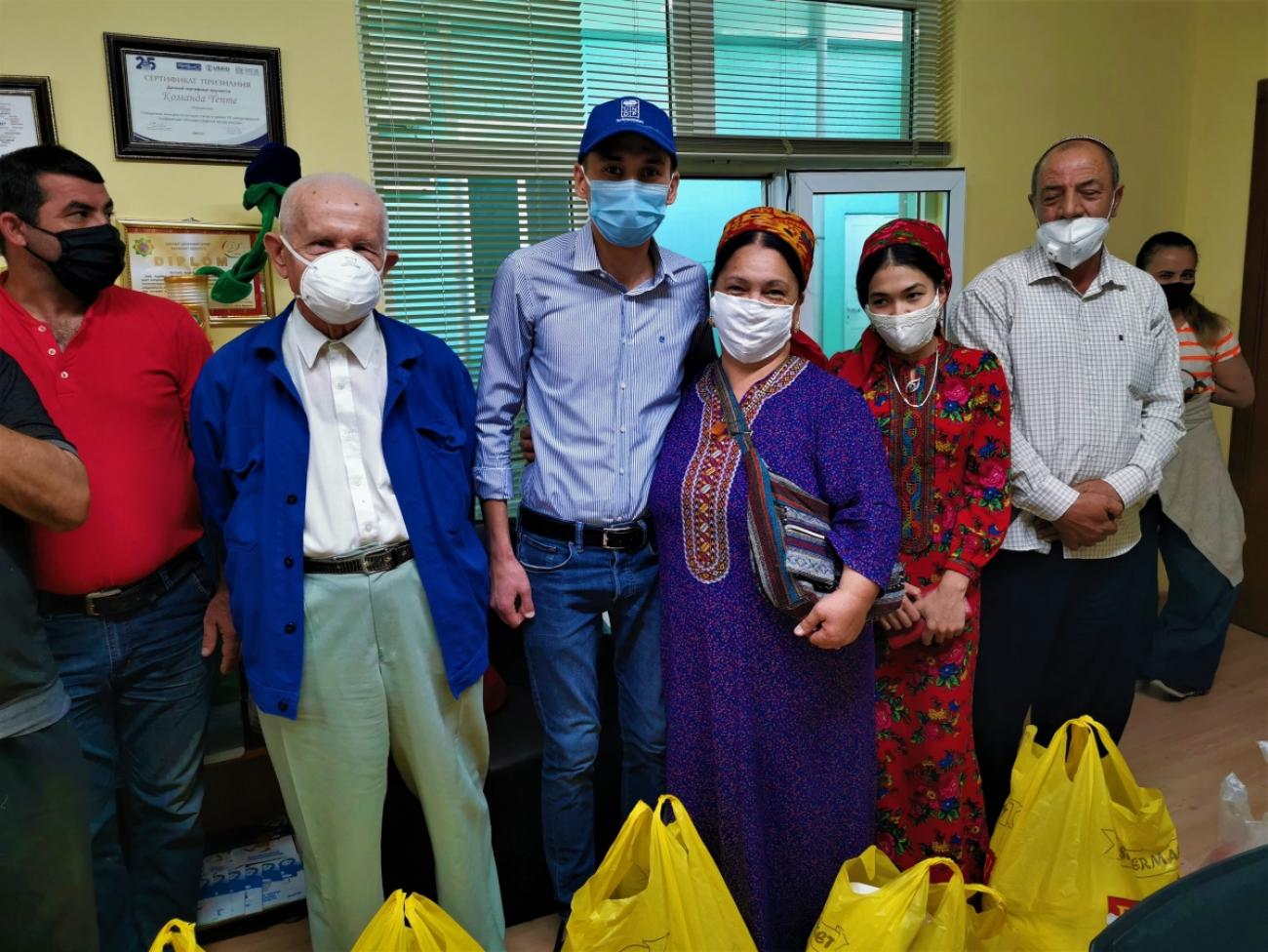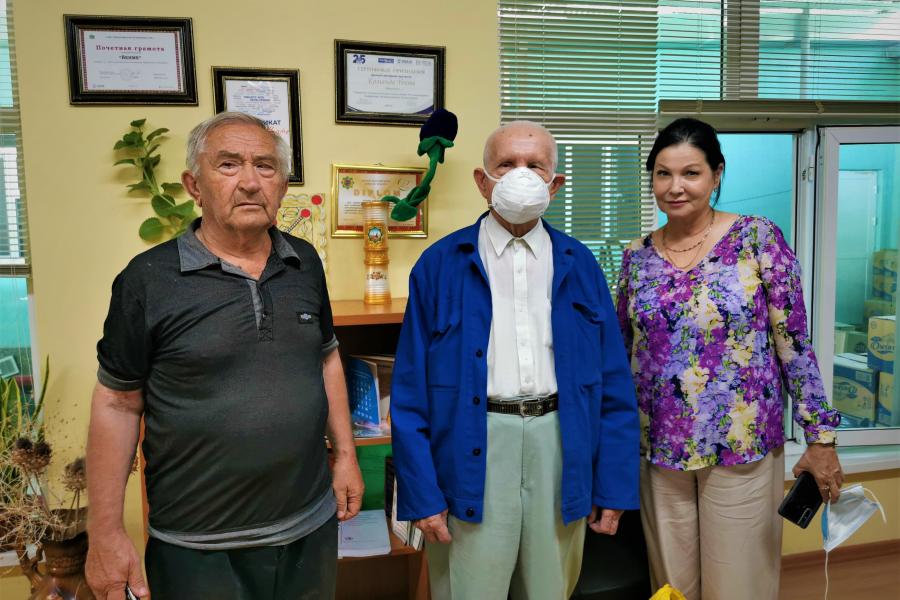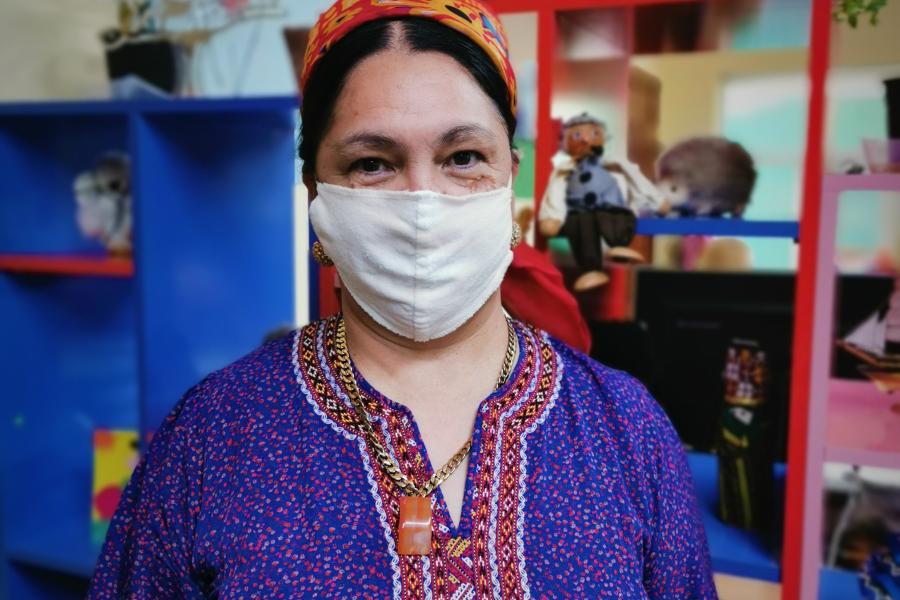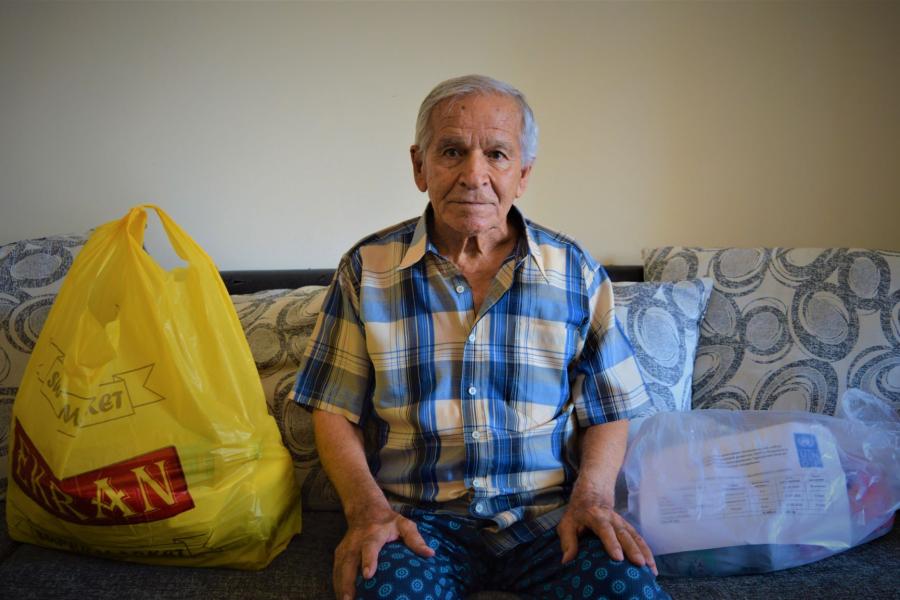Mobilize When the Crisis Hits: UNDP and Partners Distribute Support to the Affected by the Global Pandemic Situation in Turkmenistan

When the COVID19 has hit the world, no one knew how long it will take to fight it and what consequences we will face.
Everyone hoped that it will end as a seasonal flu. We did not know how many lives it will claim and what economic and social damage it will cause.
While the Government of Turkmenistan undertook timely measures to prevent appearance and spread of COVID19, the country has still been affected by the global pandemic. The complete lockdown and necessary movement restrictions which were put in place staring from January 2020. A gradual closure of all public spaces has been imposed starting from May 2020. In September 2020, children who had to start the school, went into classes split into groups of 15 people studying 20 mins per class. However, these are the effects of the pandemic which are on the surface only. Digging deeper, there are groups of people who require additional support and help in this troubled time.
The United Nations Development Programme has established a Rapid Response Facility offering countries around the world grants to fight effects of the global pandemic. UNDP Turkmenistan country office has partnered with the public organization “Yenme” and the National Red Crescent Society of Turkmenistan to identify the most in need under the current situation. “When we started designing the proposal for the RRF, we have addressed our local partners who already work with the vulnerable population of Turkmenistan to use their expertise for the analysis of the current situation. It had to be done quick as some effects of the pandemic were already showing, and it had to be done in a very professional and a delicate manner,” says Natia Natsvlishvili, UNDP Resident Representative a.i.

As a result, over 5000 households were identified to receive food and hygiene parcels. The first batch of support was already distributed in Ashgabat and Ahal by the public organization “Yenme”. Another batch of support parcels is on its way to Lebap and Dashoguz regions to be distributed by the National Red Crescent Society of Turkmenistan. Among the recipients of the support are low-income families, children with special needs, people with disabilities, single mothers of many children, elderly people living alone.
These are the groups of the population which already bear economic burdens due to the additional costs and needs to cover medial and other services. Thus, during the global pandemic situation, these groups in Turkmenistan and around the world were identified as high-risk groups requiring financial and social support.
“My mother was deaf and mute and one of my four children was born deaf too. Another my child has a cerebral paralysis. When my children were diagnosed with these diseases, I knew that it is a genetic disorder and I had to work hard to sustain my family and ear for our living,” says Jennet, 35-year-old mother of four, who received the first batch of support.

Low-income families and people with disabilities receive social and financial support from the Government of Turkmenistan. But in the situation of the global pandemic, the prices for some products went up given the closure of the borders, thus, imposing additional costs on the families.
“We live with my in-laws who help us to raise children, but it is very hard to earn for a family of 8 given that we have two children with disabilities. I dream of raising children so that they grow up worthy people, and do not see difficulties like me, so that they feel equal to all children. So, this kind of support that we are getting now allows me to use the money which I earn for preparing my children for school.”
Due to the closure of the public spaces, some employers have released their staff without pay. For some, it has become a major problem.
“My wife is the only member working in our family,” says Rejep, 42-year-old father of two. “We have two children and one of them has a disability. We decided that I will take care of children, because my wife had a better job. But with the global pandemic, her employer closed down his business. He paid her for 2 months, but then stopped given that the situation does not change. My wife is a cook and I do repair works. We still get sporadic jobs and take them with pleasure. The food and hygiene parcels which we got would allow us to support our elderly parents and our kids for some time and save money for school for our son.”
As part of distribution of the food and hygiene parcels, UNDP, “Yenme” also vised single elderly people like Sergey, veteran of World War II. When returning from the war, Sergey worked as a lead on small construction sites like greenhouses “My generation had a difficult time. I wish young people a better life, they should always listen to their parents and grandparents. Most of my generation could not study as we went to war. We defended our Homeland for the life and peace that we have now! We now live in a happy time. So, I suggest all young people to study, to study, to study…”

In July 2020, the Government of Turkmenistan has adopted the Immediate Socio-Economic Response Plan to Acute Infectious Disease Pandemic designed with support of the United Nations in Turkmenistan. The development and implementation of the Plan is technical lead by the UNDP. This Socio-Economic Response Plan comprises five areas of work that together constitute an integrated support package of measures to mitigate the negative impact of the global pandemic on the socio-economic situation in Turkmenistan, with particular focus on the most vulnerable groups in line with the principle of “leaving no one behind”.
Implementation of the plan shall become a continuation and a long-term solution to the effects of the global pandemic situation in Turkmenistan.




